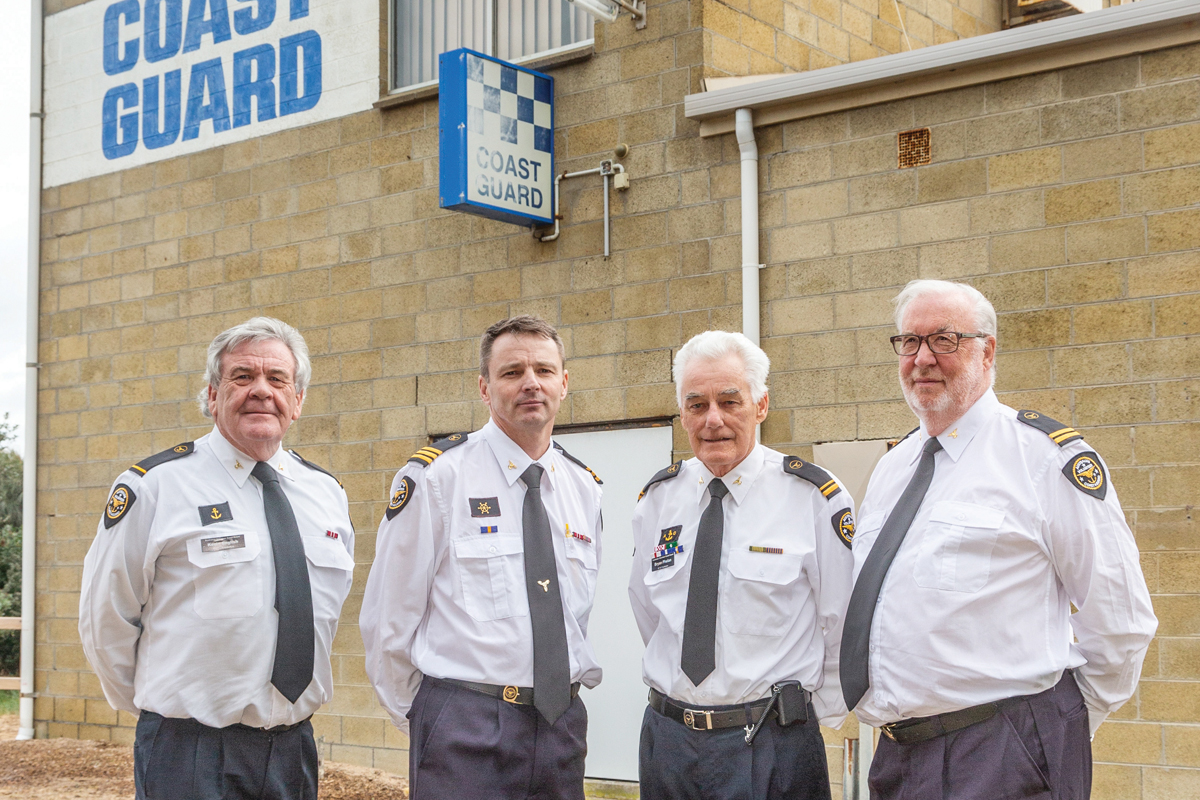THE Frankston Coast Guard is being told to disband.
The Australian Volunteer Coast Guard Association, supported by Emergency Management Victoria, has been reviewing the viability of the Frankston Coast Guard. It has decided that the Frankston flotilla should be consolidated with the unit at Carrum.
The decision follows years of setbacks and struggles for the Frankston flotilla. The group has been without a permanent home for nearly four years following the demolition of its Pier Promenade headquarters.
Plans to build a boat harbour and permanent home for the Coast Guard at Oliver’s Hill were abandoned in 2019 after the project failed to receive support from the state and federal governments. In the meantime the club has occupied the Frankston Mechanics Institute, while launching its primary rescue vessel from Patterson Lakes. The flotilla responds to about 100 callouts a year.
The end of the Frankston unit would bring to an end decades of history. The Frankston Coast Guard formed in the early 60s and was chartered as Flotilla 1.
The Australian Volunteer Coast Guard Association declined to comment on the decision to dissolve the flotilla. The Frankston unit was also contacted for comment.
Several former members of the Coast Guard have told The Times that the demise of the flotilla is a devastating blow. Former volunteer Anthony Mayall says that an Emergency Management Victoria decision to reallocate the Frankston unit’s primary vessel was a major contributing factor.
“Emergency Management Victoria has taken away Frankston’s state supplied primary rescue vessel and allocated it to another area due to the lack of facilities at Frankston and the Coast Guard having to operate from Patterson River, whilst shortly afterwards declaring Frankston’s secondary Coast Guard owned vessel as being unfit for marine search and rescue despite its very successful history,” Mayall said.
The Times asked Frankston MP Paul Edbrooke why these decisions were made, but a direct response was not provided. A state government spokesperson said “the Frankston area will still be well protected on the water, with no reduction in service to the community and existing marine search and rescue flotillas based at Carrum and Mornington to patrol the area.”
“We’re incredibly grateful for the support from Frankston Coast Guard volunteers for more than 60 years in keeping the community safe,” the statement read.
Mayall also pointed the finger at Frankston Council for the demise of the Coast Guard.
“Frankston Council, in their efforts to beautify the beach area, condemned and demolished the Coast Guard building in 2019 and have not made appropriate or adequate efforts to rehouse them,” Mayall said. “So without a building, taken by Frankston Council, and without a vessel, taken by the state government, the first Coast Guard unit in Australia and the longest serving Coast Guard unit in Australia will shortly cease to exist. To all current and past members, thank you for your service to the Frankston community.”
Frankston Council was willing to put $8 million of ratepayer money into the abandoned Oliver’s Hill project. It had planned to move the flotilla into the Yacht Club building, but eventually called off those plans too. In a statement, Frankston mayor Nathan Conroy said that council had provided “significant” support to the Coast Guard.
“Council’s support has included providing use of the Mechanics Hall as an administrative base for Coast Guard Frankston. Improvements were made to the hall in order to ensure they had the facilities they required to operate,” he said. “Council also hosted extensive consultation sessions with key stakeholders to develop and examine options with investigation, consultation and concept designs provided to federal and state governments for funding considerations for a new location.
“We thank Coast Guard Frankston for their many years of dedicated service to the community.”
Richard Burgess volunteered with the Coast Guard for more than 40 years. He said that the loss of the Frankston unit would be a loss to the whole community. “Surely the flotilla’s 60-year resume demonstrates that it has always strived to achieve a controlled environment. Prevention is better than cure, of which its members are well versed, particularly given the flotilla members were delivering boating safety courses and marine communications services some 40 years prior to the introduction of Transport Safety Maritime’s boat licensing program and the outsourced marine radio network,” he said.

